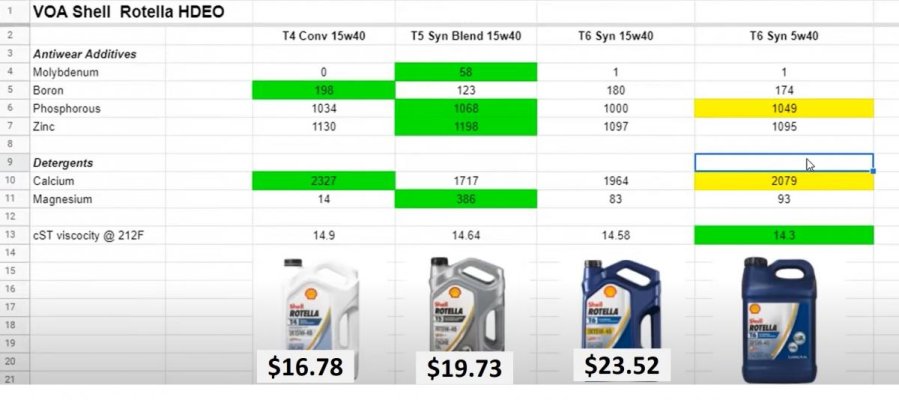mvweebles
Guru
- Joined
- Mar 21, 2019
- Messages
- 7,223
- Location
- United States
- Vessel Name
- Weebles
- Vessel Make
- 1970 Willard 36 Trawler
I need some oil - have decided on Shell Rotella due to local availability. Question is T4 (oil), T5 (synthetic blend), or T6 (synthetic)? My inclination was T6 but I came across this YouTube review and looks like T5 might be a better choice. I grabbed a screenshot of the findings to save y'all 11-mins of your life listinening to an unscripted narrator turn a 2-min vid into a 12-min one.
Engines: Old-school Perkins 4.236 75hp taking 2-gals; Northern Lights 6kw with 3-cyl Shibaura natural.
Thoughts?
Peter

Engines: Old-school Perkins 4.236 75hp taking 2-gals; Northern Lights 6kw with 3-cyl Shibaura natural.
Thoughts?
Peter


